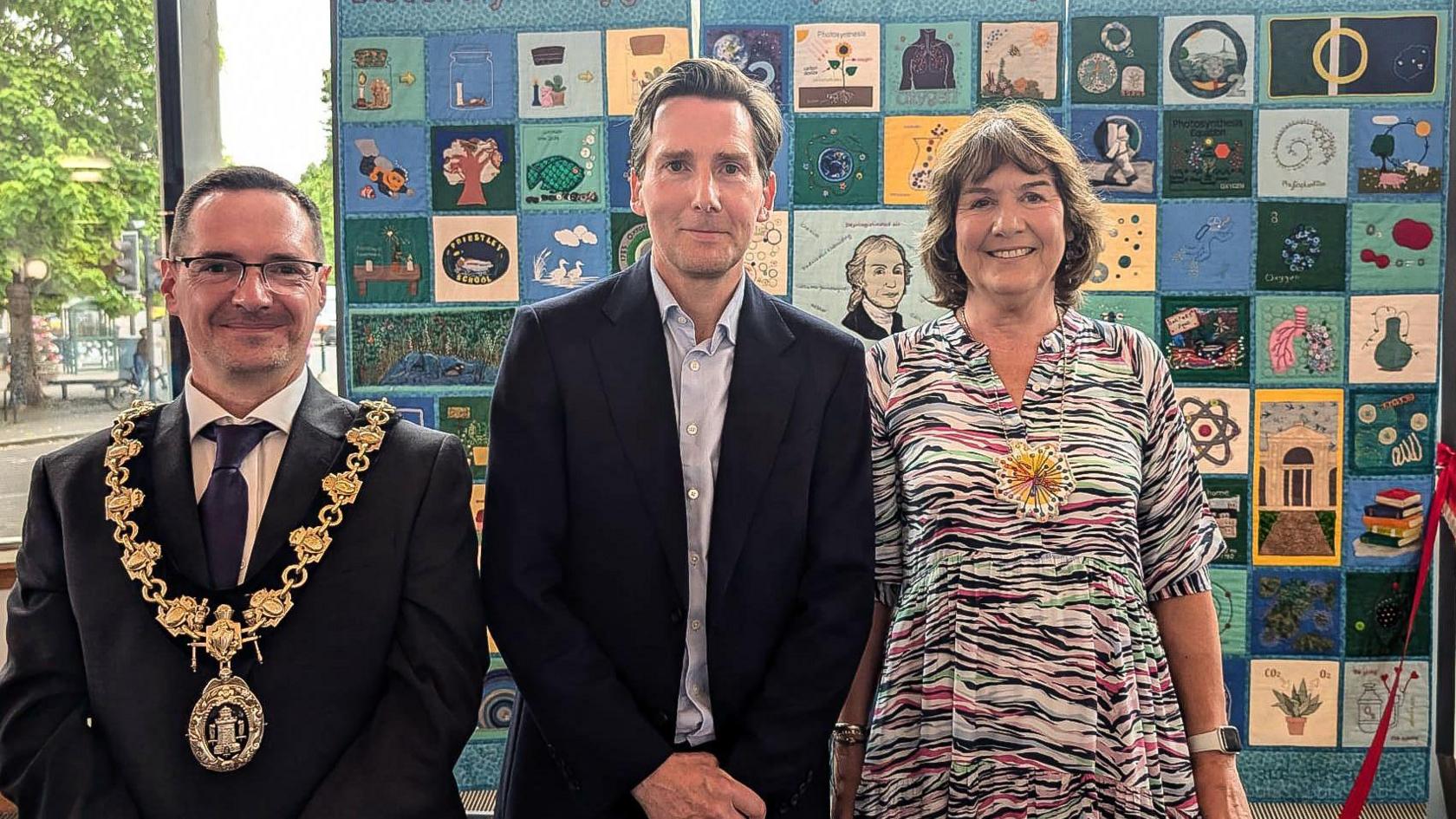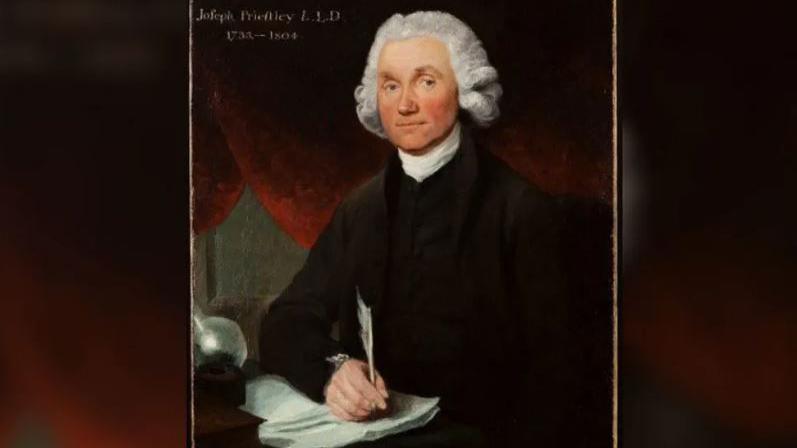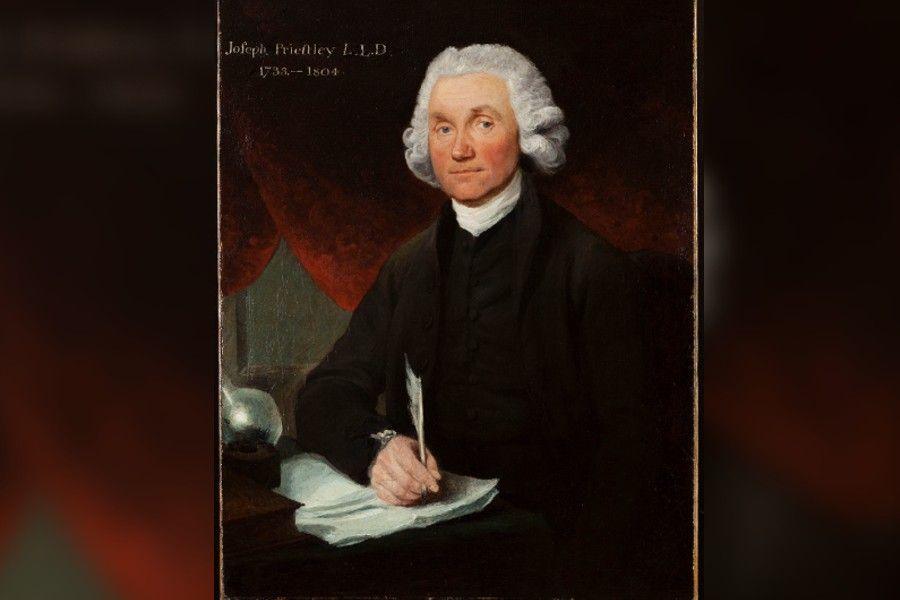Anniversary of discovery of oxygen celebrated
More than 100 people were involved in creating a community quilt
- Published
A community has hosted an event to honour the 250th anniversary of the discovery of oxygen.
Joseph Priestley made the breakthrough while working as a librarian at Bowood House in Calne, Wiltshire, in 1774.
To mark the occasion, a quilt was unveiled by Lord Kerry of Bowood House on Saturday, with each patch individually handmade by the town's residents.
More than 100 people were involved in creating the community quilt, with ages spanning from 11 to 91.
Lord Kerry, who cut the ribbon at the unveiling of the "stunning" masterpiece, said it was an "honour" to see the hard work of the community come together.

A quilt made by the local community was unveiled
"Your passion in the achievements and legacy of Joseph Priestley is inspiring," he said.
The day of celebrations was organised by the Priestley 250 Steering Group, with funding from the Arts Council, Royal Society of Chemistry, Fulmer Trust, and local councils.
Chair of the Steering Group, John Boaler, said the community effort showed "a real sense of pride in the achievements and legacy" of one of the town's most famous residents.

Joseph Priestley was born on 13 March 1733
Joseph Priestley is considered to be one of the founders of modern chemistry because of his contributions to experimental science.
The quilt, now on display at Calne library, is a homage to science and discovery.
It depicts elements on the periodic table, instruments used in Priestley's experiment, and images showing how valuable oxygen is to all living things.
Sue Peskett, co-ordinator of the Calne Community Quilt Project, said the commemorative piece of art would serve as a "symbol of Calne's identity, as a town of discovery".
Follow BBC Wiltshire on Facebook, external, X, external and Instagram, external. Send your story ideas to us on email or via WhatsApp on 0800 313 4630.
- Published28 April 2024
